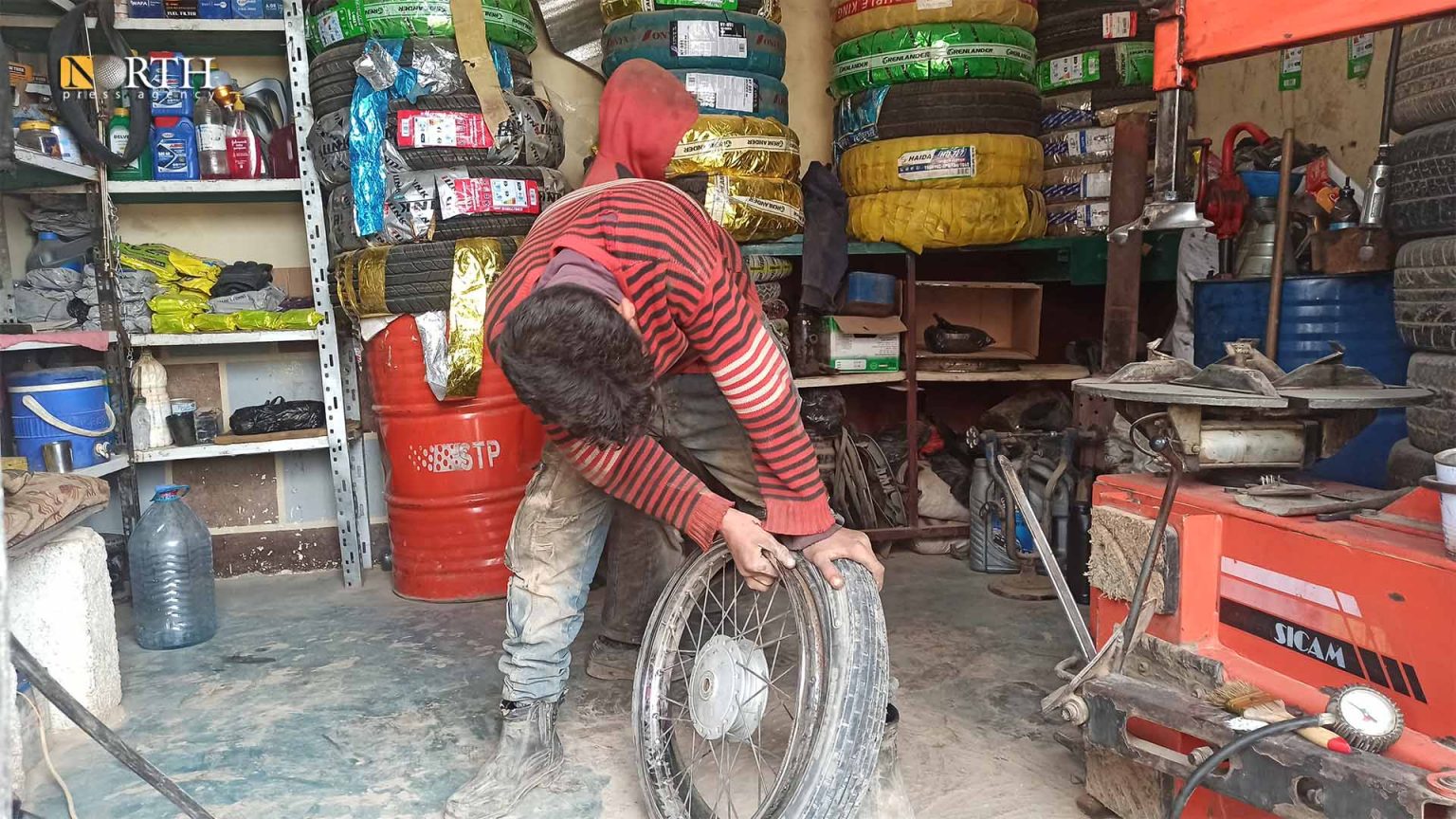IDLIB, Syria (North Press) – The governorate of Idlib, northwest Syria, is witnessing an increase in child labor amid difficult living conditions that all the governorates have been experiencing for years.
The labor varies, but most work is difficult and concentrated in the industrial field like car maintenance, blacksmithing, carpentry, construction work, food stores, and selling materials at stalls.
Violence and worthless wages
The Manager of the Syrian Response Coordinators team, Mohammed Hallaj, said that the “child labor phenomenon was already there before the Syrian crisis, but it has increased since 2011.”
Hallaj attributed this to “the decrease in the level of families’ income, especially the big families, lack of awareness, and poverty.”
The average income of working children does not exceed ten dollars per month. “I do not think that any employer pays more than that,” he added.
Hallaj stated that camps in areas on the borders with neighboring countries come first in the spread of this phenomenon, as there are industrial zones that attract the bulk of children “with low wages that are not commensurate with the child’s physical fatigue.”
Weak awareness campaigns
Awareness and stay-in-school campaigns for children, which organizations working in the region carry out, do not receive people’s attention, according to Hallaj.
He adds that the children are often exposed to violence by their employers. “We see that the child who commits a tiny mistake while working is beaten by the employer.”
Waleed al-Mousa, an IDP from Hama countryside living in Atma camps, says he sends his 15-year-old child to work in a motorcycle repair shop due to the “lack of any future for education in the region.”
“The certificates issued by the Syrian Interim Government and Salvation Government in Idlib are not recognized, and the situation in the camps is very bad,” he added.
14-year-old Nassir al-Aswad, an IDP from the northern countryside of Homs living in al-Dana, north of Idlib, is forced to walk to the car repair shop in the industrial zone of al-Dana.
Al-Aswad works daily for five Turkish lira, equivalent to 70 cents in US currency.
For three years, he has been forced, after his father died and his family was displaced, to leave school. “I was successful in study, but the poor financial situation that my family is living in forced me to work.”
He worked in several hard occupations, including in a blacksmith’s workshop in al-Dana for a year, but the employer did not give him his wage which was then 500 SYP a day, ” which forced me to look for another job.”
Long hours of work
After ten years of war, two million Syrians suffer from extreme poverty, while more than 12 million are food insecure, according to statistics recently issued by World Food Programme.
13-year-old Qayis al-Mulhim, an IDP from Soran city, north Hama, is working every day from 7:00 a.m. to 5:00 p.m. loading and unloading of goods from cars in a food store.
Al-Mulhim works for 20 Turkish lira per week, which he considers “too little” for his hard work.
He left school two years ago and was forced to work in this store due to lack of job opportunities, according to him.
16-year-old Ahmed al-Hussein, an IDP from northern Hama living in al-Dana, said that every morning he has to place his cart in front of one of the schools to sell beans, and he is unable to hide his sadness as he is deprived of education.
“I feel very sad when I see children playing in the school yard and getting out of school; I feel sorry for myself,” he added.
The child pointed out that he is forced to work to collect the price of medicine for his sick elderly father, as he is the eldest child. “I work to help my mother with the expenses, who works in a sewing workshop to secure food for his siblings and the price of his father’s medicine.
“Four out of five Syrian people live below poverty line, which drives the children to coping mechanisms such as child labor, early marriage and military recruitment to help their families,” according to UNICEF.

